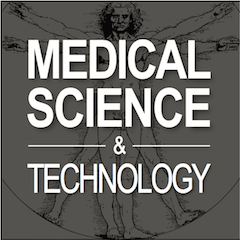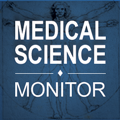Personality characteristics of patients with essential hypertension
Angelika Chachaj, Krzysztof Małyszczak, Wojciech Kucharski, Joanna Lukas, Krystian Pyszel, Ryszard Andrzejak, Andrzej Szuba
Med Sci Tech 2009; 50(2): RA93-97
ID: 881666
Available online:
Published: 2009-03-22
Introduction: Decades of researches that examined relationship between psychological variables and the hypertension have yielded inconsistent result. The aim of the study was to examine relations between essential hypertension and widely selected personality traits. Associations between grade of hypertension and personality characteristics were also evaluated. Material and methods: 84 patients with essential hypertension and 91 healthy subjects as a control (respectively: 32 and 35 women, 52 and 56 men; mean age: 38,92 and 38,99 years) were assessed by the following self-report questionnaires: The Cook-Medley Hostility Scale (CMHS), Toronto Alexithymia Scale (TAS-20), Bermond-Vorst Alexithymia Questionnaire (BVAQ), The Marlowe Crowne Social Desirability Scale (MCSDS), Eysenck Personality Questionnaire – Revised (EPQ-R), General Health Questionnaire (GHQ-30) and Symptom Checklist 90-Revised (SCL-90-R). Results: Diagnosis of hypertension was associated with two scales of TAS-20 (difficulties identifying feelings and externally oriented thinking), total score of TAS-20, one scale of BVAQ (fantasizing), MCSDS scale (social desirability) and seven scales of SCL-90-R (somatization, interpersonal sensitivity, anxiety, psychoticism, hostility, obsessive-compulsive, paranoid ideation). Grade of hypertension was related to one scale of TAS-20 (difficulties identifying feelings), two scales of EPQ-R (neuroticism and lie) and to psychological distress measured with SCL-90-R and GHQ-30. Conclusions: Diagnosis of essential hypertension was linked with alexithymia, social desirability and psychological distress. Grade of hypertension was related to alexithymia, neuroticism, lie and psychological distress. (Clin Exp Med Lett 2009; 50(2):93-97)
Keywords: alexithymia, Hostility, neuroticism, Social Desirability, psychological distress



